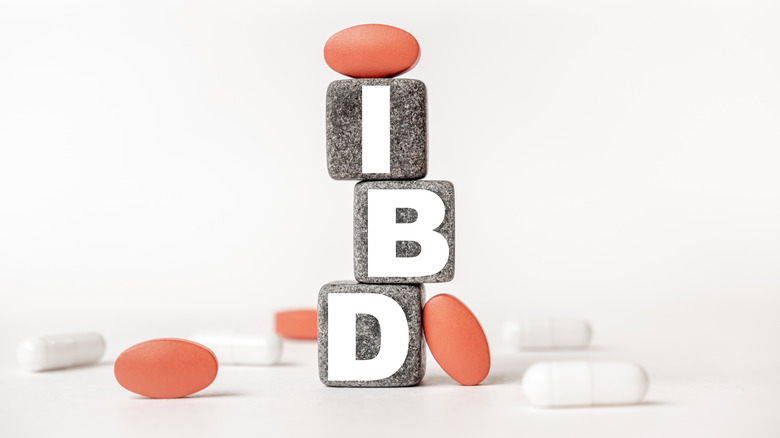Starches That Actually Help Inflammatory Bowel Disease Symptoms
Inflammatory bowel disease (IBD) is a serious chronic illness, and managing its symptoms can be a real challenge. While there is no cure for the disease, there are treatments that can help manage its symptoms. One of the best things you can do for your inflammatory bowel disease is to eat a healthy, balanced diet. This means eating plenty of fruits, vegetables, and whole grains, and avoiding processed foods, saturated fats, and refined sugars.
While many people with IBD eat a low-fiber diet to help ease their symptoms, new research published in the Journal of Human Nutrition and Dietetics shows that not getting enough fiber can actually harm the body more. Fiber is essential for gut and digestive health and can cause damage and annoying symptoms when it is not consumed (via Mindbodygreen). While some fibrous foods aren't ideal for people with IBD, prebiotic fibers and resistant starches can both help ease symptoms of the condition. Foods that contain these nutrients include plantains, green bananas, legumes, potatoes, and rice.
What is inflammatory bowel disease?
Inflammatory bowel disease (IBD) is a general term used to describe disorders that involve inflammation of the gastrointestinal tract (via Mayo Clinic). The two most common types of IBD are ulcerative colitis and Crohn's disease. Symptoms of IBD can vary depending on the individual but may include abdominal pain, cramping, diarrhea, fatigue, weight loss, and fever.
Inflammatory bowel disease can be a serious condition that can lead to life-threatening complications if left untreated. Anyone can develop IBD, but it is more common in people with a family history of the condition. Lifestyle factors like smoking can also increase your risk of developing this condition. Treatment for IBD typically involves medication and lifestyle changes. Surgery may also be necessary in some cases, although this usually only happens in serious cases. If you think you may have inflammatory bowel disease, it is important to see a doctor for a diagnosis. Early diagnosis and treatment is essential for managing the condition and preventing complications.


